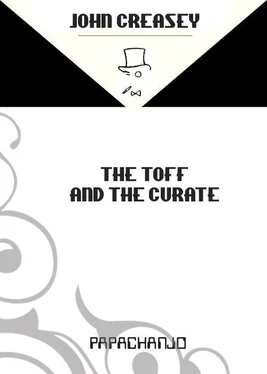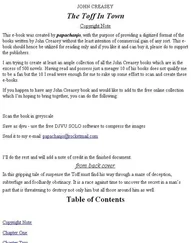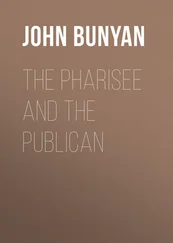John Creasey - The Toff And The Curate
Здесь есть возможность читать онлайн «John Creasey - The Toff And The Curate» весь текст электронной книги совершенно бесплатно (целиком полную версию без сокращений). В некоторых случаях можно слушать аудио, скачать через торрент в формате fb2 и присутствует краткое содержание. Жанр: Старинная литература, на русском языке. Описание произведения, (предисловие) а так же отзывы посетителей доступны на портале библиотеки ЛибКат.
- Название:The Toff And The Curate
- Автор:
- Жанр:
- Год:неизвестен
- ISBN:нет данных
- Рейтинг книги:5 / 5. Голосов: 1
-
Избранное:Добавить в избранное
- Отзывы:
-
Ваша оценка:
- 100
- 1
- 2
- 3
- 4
- 5
The Toff And The Curate: краткое содержание, описание и аннотация
Предлагаем к чтению аннотацию, описание, краткое содержание или предисловие (зависит от того, что написал сам автор книги «The Toff And The Curate»). Если вы не нашли необходимую информацию о книге — напишите в комментариях, мы постараемся отыскать её.
The Toff And The Curate — читать онлайн бесплатно полную книгу (весь текст) целиком
Ниже представлен текст книги, разбитый по страницам. Система сохранения места последней прочитанной страницы, позволяет с удобством читать онлайн бесплатно книгу «The Toff And The Curate», без необходимости каждый раз заново искать на чём Вы остановились. Поставьте закладку, и сможете в любой момент перейти на страницу, на которой закончили чтение.
Интервал:
Закладка:
Rollison pondered and then said quietly:
“I understood from Mr Straker that you, not he, had insisted on Kemp’s resignation. A slip of the tongue, perhaps—or I may have misunderstood him.”
“Yes, you might have done. Look after the young man, Mr Rollison. If there is any other way I can help, please do not hesitate to let me know.”
“I won’t,” Rollison promised and shook hands.
He felt the influence of Anstruther’s words and manner as he walked from the house but was not so absorbed that he failed to notice that he was being followed. He gave no indication that he knew but went by a roundabout way to the flat.
The man following him was small and wiry, flashily dressed and at great pains to pretend that he was interested in everyone but Rollison. He had not been at hand when Rollison had left the flat, nor had he followed him to Anstruther’s house, so probably the house had been watched.
It could only be because Straker had wanted to find out whether he pursued his inquiries.
Even then, he did not think that any bare-faced attempt at harming him would be made in Gresham Terrace although he was wary as he approached his flat and put his hand to his pocket, gripping a small automatic pistol. A taxi turned into the street and came at a rattling pace towards him. He saw the flashily dressed man motion towards its driver.
The taxi slowed down and a man in the back fired at Rollison through the open window.
CHAPTER NINETEEN
More Of Mr Straker
Rollison fired back, dodging to one side as he did so. His aim was wide but so was that of the man in the taxi. As it drew level, two more shots were aimed at Rollison who aimed more carefully. As the taxi reached the corner, one of the rear tyres burst. The taxi swerved across the road. The flashy man took to his heels. The driver and his passenger jumped from the taxi as it was moving and raced towards Piccadilly. A dozen people saw the taxi crash against the curb.
Rollison turned towards the flat as Jolly came hurrying from it.
“Keep the police away, if you can,” said Rollison, “stall them for ten minutes, anyhow.”
“I’ll do my best, sir.” Jolly hurried towards the scene of the crash where a man was already pointing towards Rollison while talking to a policeman. Rollison hurried upstairs and telephoned Grice.
“I’ve been wanting—” began Grice.
“Never mind what you’ve been wanting,” said Rollison, urgently. “A Mr Arthur Straker lives in South Audley Street. Have him watched closely and don’t let him get away, whatever you do. When you’ve fixed that, you might send a man to Gresham Terrace to convince the constable who is shortly coming to see me that I only fired at the taxi in self-defence!”
“Fired? What taxi?” cried Grice. Rollison heard him lift another telephone and say into it: “Come in at once, Bray.”
“I think it was the one in which I was taken for a ride the other night,” said Rollison. “The driver has escaped. It was a daring attempt to stop me,” he went on, “but there isn’t time to discuss that now. Do find out what you can about Straker.”
“I know quite a lot about Straker already,” said Grice, unexpectedly. “He is a director of a firm of cartage and transport contractors and some of his vans have been used for delivering—”
“Whisky!” cried Rollison, exultantly, “what a pity we can’t be entirely frank with each other! Anything on Straker himself?”
“No. We’ve been looking for one of his men.”
“Your man is Straker himself,” said Rollison confidently. “Ah, here come the coppers. Hustle your sergeant over here, won’t you.”
“He won’t be long,” promised Grice.
Rollison replaced the receiver then looked up into the face of a youthful policeman who had entered with Jolly.
By the time Rollison had made a statement, the sergeant from the Yard had arrived—a clean-cut individual who reassured the constable and even congratulated him on using shorthand.
When they had gone, Rollison said to Jolly:
“That’s Bray, the man who arrested Craik. Grice is fair.”
“Bray is having a chance to rehabilitate himself, presumably,” said Jolly who was obviously thinking of something else. “Do you know what made the men attack you?”
“Yes. A worried Arthur Straker!”
“I thought perhaps that was the case, sir—I have been able to find out that his firm not only serves the East Wharf but many others nearby and also has contracts for two firms of whisky distillers. It wouldn’t be surprising if we have found the distributors.”
“We certainly have,” said Rollison, beaming. “Things should move fast now. Grice will have evidence against Straker but Straker won’t know it yet, I shall still be his enemy Number I. There isn’t much to do but watch Kemp. They might still try to make him the scapegoat. I should have asked Grice—”
He broke off at a ring at the front door. It was Grice who came in by himself.
“Enter the bird of ill-omen,” greeted Rollison, promptly. “Have you released Kemp, yet? If not, it’s time you did.”
“We have not,” said Grice.
“Have you charged him?” demanded Rollison.
“Not yet,” answered Grice.
“You can’t hold him much longer in detention, can you? Will you act in defiance of all known laws of the country and commonsense and hold on to him until he has a good chance of making you look a fool— which, usually, you’re not.”
“Aren’t you being a bit severe?” demanded Grice. “You first put us on to him.”
“Yes, I know,” said Rollison. “I thought, and think, that the young man is in great danger. And on second thoughts—” he gave Grice so charming a smile that the Yard man looked taken aback “—you’re a wise old bird, William! A spark of genius makes all Yard men kin! Yes, hold Kemp. If needs be, even charge him—but keep him with you. He’ll at least be safe.”
“Would you mind talking like a sane man?” demanded Grice.
“I’m sane,” said Rollison. “Straker knows it which is his reason for having men in taxis and with firearms. Much evil, much hypocrisy but some radiance shining through. The power for good is greater than that for evil—but, being a policeman, you probably don’t think so!”
“Why have you suddenly swung over to Kemp?” demanded Grice.
Rollison told Grice all he had learned and when he had finished Grice—picking at a piece of peeling skin—spoke thoughtfully.
“You think that Straker first had Kemp sent away from Mayfair, in order to—”
“Not sent away, driven away. He made clever use of Kemp’s own chief failing, pride in himself. The same thing that made you jump to the conclusion that he was stalling. Yes, Straker discovered that Kemp was nosing about the clubs and, undoubtedly, Kemp came near to finding out something. So, what happened? Kemp was driven to the East End. Why? Because Straker, his one friend in the West End, put it to him. Early in this affair he told me that a friend had suggested that he went to see Cartwright—I think we’ll find that Straker was that friend. Straker wanted him watched and also where he could do no harm. Kemp, probably not knowing that he had discovered anything that might be hurtful to Straker & Company, set about his work of reform. His passion for putting the world right got him into trouble again. He came close to making another discovery, although we don’t know what. There must be something which he would find in the ordinary course of his parish work.
“Straker must have seen his mistake and tried to have hirfo driven out, as he felt sure that there would be no danger. Just a fighting parson without a friend, a failure in society circles, a failure with the lowly. But Kemp has a basic commonsense. He made inquiries, discovered that I had a reputation for knowing his district and came to see me.”
Читать дальшеИнтервал:
Закладка:
Похожие книги на «The Toff And The Curate»
Представляем Вашему вниманию похожие книги на «The Toff And The Curate» списком для выбора. Мы отобрали схожую по названию и смыслу литературу в надежде предоставить читателям больше вариантов отыскать новые, интересные, ещё непрочитанные произведения.
Обсуждение, отзывы о книге «The Toff And The Curate» и просто собственные мнения читателей. Оставьте ваши комментарии, напишите, что Вы думаете о произведении, его смысле или главных героях. Укажите что конкретно понравилось, а что нет, и почему Вы так считаете.












